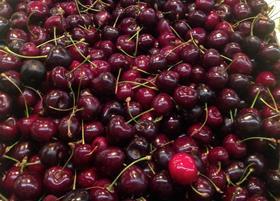
Greece has experienced a successful cherry season this latest campaign, according to George Kallitsis, export director at Thessaloniki-based exporter Protofanousi Fruits, due to a drop in volumes produced.
Volumes nationwide were as much as 40 per cent down, although Protofanousi’s crop saw a decline of closer to 20 per cent, which translated into larger, higher quality fruit.
“Some markets like Italy performed really well,” said Kallitsis. “This year, it has been our best export market. It usually starts in July, but this year we started sending in mid-June, partly due to a lot of rain in cherry-growing regions in Italy, leading to lower volumes and lesser quality.”
According to Kallitsis, Italians are becoming increasingly aware of the quality of Greek cherries, and Protofanousi believes efforts must be made to achieve the same status elsewhere in Europe.
“The Italians are more convinced of our quality,” he said. “Logistically, it’s easier to import from Greece than from Turkey, as it takes just one day by truck, but many European markets including Germany remain attached to Turkish cherries, selling Greek fruit as a lower quality product. We are trying to persuade our German customers that Greek cherries are of equal if not better quality than Turkish fruit, depending on the season.”
One advantage Kallitsis believes Greek cherries enjoy is their variety. “Turkey has one main cherry variety, the Napoleon,” he said. “In Greece, we offer many varieties, modern ones like Regina and Cordia, which are more robust and have a longer shelf-life.”



